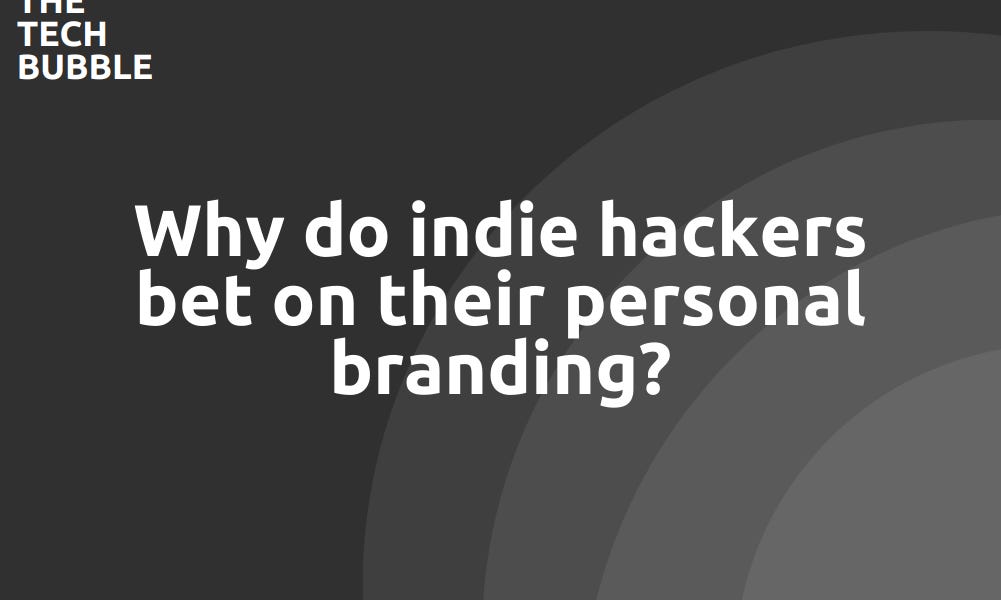How and where do you sell your premium WordPress plugins?
I've built a few premium WordPress plugins. I've built my own solution to handle automatic updates and I'm using Gumroad for payment management. Recently, I had a conversation that made me think if this is the right way to do it?
I chose this solution because marketplaces like Codecanyon are taking a great amount of the revenue and that was a price I didn't want to pay. On the other hand, their user base is huge and they have "some" advantage on SEO as well.
Do you have any experience selling a product both on Codecanyon (or other marketplaces) vs selling it on your own site? Which one worked best for you? Does the cut that marketplaces take worth it?
Thank you 🙏
Trending on Indie Hackers
 Indie hackers selling to indie hackers?
Indie hackers selling to indie hackers?

CodeCanyon comes with its own set of terrible problems: the cut they take, the inability to automatically serve updates to your plugins, not being able to know who your customers actually are.
I have three premium WordPress plugins and they are all sold on their own marketing sites I run with WordPress and Easy Digital Downloads. Two of the plugins are free, with paid add-ons, and the third is paid only without a free version on WordPress.org.
The set up involved with sales and licensing (which Easy Digital Downloads handles) is simple enough. It's certainly not worth it to me to sell any of my plugins on a third-party marketplace like CodeCanyon.
One thing to be wary of if you go with the "freemium" approach, and @feriforgacs mentions this in a reply here, is that it is possible your free plugin is "good enough" for most users and a paid upgrade might not be very popular. Be careful of what you give away for free if your goal is to generate revenue.
Based on your response I assume you have some experience with CodeCanyon. Can you please share some stats about your sales on CodeCanyon? I'd really like to know how many sales you made there and how much time that took vs how much time did it take to make the same amount of sales with the standalone landing pages.
And thank you for sharing your thoughts 🙏
I never bothered to sell any of my plugins on CodeCanyon. I once ran a site where I interviewed over 70 WordPress plugin developers (https://theplugineconomy.com) and almost all of them rejected the platform. Some who had used it openly regretted the choice after the fact. There were certainly developers in favor of it but the vast majority didn't consider it as a viable option.
Thank you.
I think I'll go through all those interviews during the weekend 😄
Discoverability is probably the hardest part for new paid plugins. In my experience most WordPress users will turn to the WordPress.org directory for what they need, and if they can't find something there, will start Googling, which favors established marketplaces like Codecanyon.
If you are trying to distribute your plugin directly, independent of a marketplace, you essentially have to build up all of the same marketing presence and domain authority as those established sources. In other words, you essentially have to do all the same marketing work as anyone else launching a new product or tool, WordPress or not. If you are not already someone with an established audience in the WordPress community and if you don't have a large budget for paid acquisition (ads on social and search), this can take a while.
So it could be worth thinking about the tradeoff of a marketplace revenue share in terms of your time, effort and cost for that level of marketing and promotion work. It could also be the difference between having people discover your plugin within days/weeks in a marketplace, versus months/years out on the broader web. Once the plugin is established, you could consider taking over distribution on your own again.
Another route to consider is making a free and open source version of your plugin that you make available in the WordPress.org directory, to get users interested in the concept and to see the value that might come from a pro/paid version. While there are some clear guidelines about not using the WordPress.org directory just as a marketing channel for your paid version (i.e. you need to make sure the free version is useful on its own and without a lot of annoying upgrade prompts), it can still be a good way to lead people to something else. See Yoast SEO Premium, Advanced Custom Fields Pro and similar paid plugins as examples of that.
Thank you for your response, Chris 🙏
One of my plugins is available for free in the WordPress plugin directory with a bit more than 450 installs, but I made only 13 sales with the pro version. And some of those sales happened before I made the free version available. So at the moment, I don't feel the power of the free listing when it comes to sales. But I think you are right about the SEO benefits.
Maybe the free version is good enough for most people, maybe the additional features in the premium version are not worth the upgrade. I don't know.
Providing a free version didn't work for me in the past and I'm afraid it's happening again.
It'd be great to know what is the conversion rate for really popular free plugins.
As you mentioned, maybe I should think about these marketplaces as a special kind of advertising where instead of paying a fee upfront I pay only when I make a sale.
Thank you again for taking the time and sharing your thoughts with me 🤗